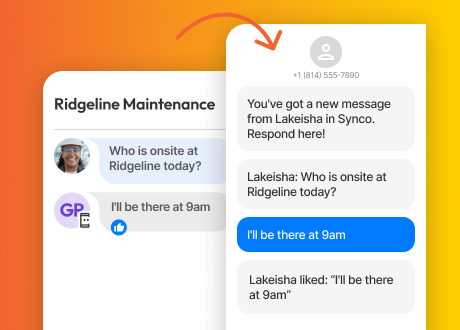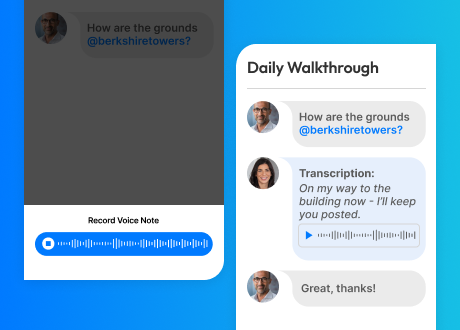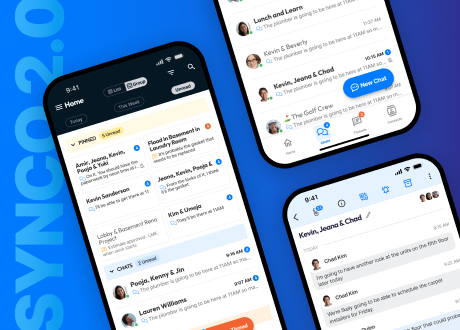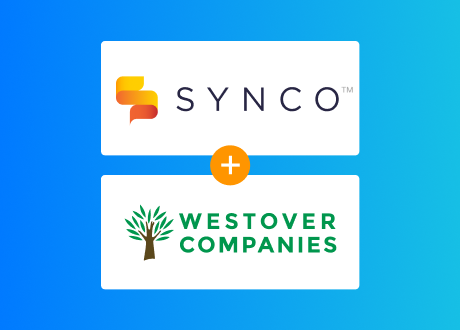Every property management leader is looking to boost productivity at the property level and deliver a great resident experience. But using email chains and disjointed text message threads for property management communication causes most distributed property management teams to struggle to stay on the same page: people are constantly asking “where are we on this?” and searching for info buried in emails or texts.
Property management teams are realizing that it’s time to transition off of email and text, and start communicating via a modern real-time messaging platform (think group and one-on-one chat, instant organization, faster search). Property management teams need tools that are specifically designed to help distributed teams collaborate more efficiently, stay connected, and provide high-quality service to residents, regardless of their location.
Property management is a complex and demanding field. Not only are internal departments constantly sharing information and collaborating with each other to solve problems, but they’re also communicating constantly with residents, vendors, and other stakeholders. And they’re doing all of this pretty much 24/7.
Real-time messaging and organization on one platform helps teams to:
- Share information & resources quickly and easily
- Coordinate tasks and projects
- Resolve conflicts
- Build trust & rapport
- Reinforce company culture
- Provide excellent customer service
McKinsey & Company’s report reveals that employees spend a significant amount of time on emails, with an average of 28% of their workweek being consumed by it*. However, organizations can reduce email time and increase productivity by transitioning to a more advanced communication platform.
A centralized modern communication platform that offers instant messaging and file, image, and video sharing allows property management teams to work together seamlessly, even when members are located in different regions. The result? Quicker response times, better resident experiences, and improved reputation and success for the organization. Key use cases include:
- everyday emergencies and property issues, where you want to be able to quickly send a message to the right people, without wondering who to CC on an email
- Complex inter-departmental projects, where you want one dedicated space to talk and to share files, photos, and videos without using 5 different email chains
- Conversations relating to a particular property or unit, where you’d like to label and organize the conversation so you can refer to it later
Real-time communication can also assist in building stronger team culture, even in remote teams. A central communication and collaboration platform promotes better teamwork and a positive work environment, allowing property management teams to share updates, collaborate on projects, and celebrate achievements. This creates a sense of unity and shared purpose among team members.
To conclude, modern communication platforms are indispensable tools for property management teams, particularly those that are distributed. Through real-time communication, file sharing, and collaboration tools, teams can streamline workflows, provide high-quality service to clients, and build stronger team culture, regardless of their location. In today’s fast-paced property management industry, the use of advanced communication platforms is not a luxury but a necessity.
*https://www.mckinsey.com/business-functions/mckinsey-digital/our-insights/the-social-economy




